
Georg Ernst Hinzpeter (9 October 1827, Gelsenkirchen - 28 December 1907, Bielefeld) was a German pedagogue.

Georg Ernst Hinzpeter (9 October 1827, Gelsenkirchen - 28 December 1907, Bielefeld) was a German pedagogue.
His father was a gymnasium teacher. After completing his primary education, he studied in Halle and Berlin, majoring in philosophy and classical philology. He graduated with a Doctoral degree in both subjects. His first position was as a tutor for the Wittgenstein family; then for the family of Count Karl von Schlitz. After that, he spent a few years teaching at the Ratsgymnasium Bielefeld . In 1866, he was appointed tutor to Prince (later Kaiser) Wilhelm and his brothers. In 1875, he married Octavie Darcourt, the Prince's French teacher. [1]
He held his position until the Prince came of age. This was the first time an heir to the throne had not been tutored by the traditional military educator; an innovation that was strictly enforced by the Prince's mother, Crown Princess Victoria. She also saw Hinzpeter's strict methods as a way of compensating for Wilhelm's physical handicap which, to her, was a major deficit. His drastic approach, by modern standards, was based on Calvinism, mortification of the flesh, and the denial of pleasure. It may have been a significant factor in creating the future Kaiser's unpleasant personality.
After Wilhelm came to power in 1888, Hinzpeter was appointed as a personal advisor and secret government councilor. [2] In 1891, he was a candidate to succeed Gustav von Goßler as Minister of Culture. From 1904, he was a member of the Prussian House of Lords. The Kaiser was in attendance at his funeral.
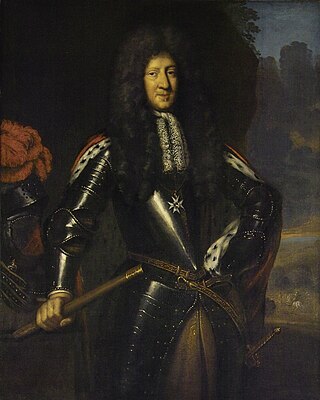
Prince Georg Friedrich of Waldeck was a German and Dutch Field Marshal and, for the last three years of his life, Grand Master of the Order of Saint John.
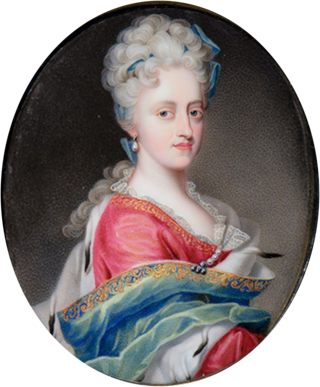
Maria Magdalena of Austria was a governor of Tyrol and daughter of Leopold I, Holy Roman Emperor and his third wife Eleonor Magdalene of the Palatinate-Neuburg. She died unmarried.

Wilhelm, Duke of Saxe-Weimar, was a duke of Saxe-Weimar.

Maximilian Karl, Prince of Löwenstein-Wertheim-Rochefort was an Austrian military officer and the first Prince of Löwenstein-Wertheim-Rochefort.

Karl Friedrich Johannes Kuhlo together with his father Eduard Kuhlo, founded the German Protestant Posaunenchor movement. Working in collaboration with the Bielefeld instrument maker Ernst David he developed the kuhlohorn for use by the ensembles.
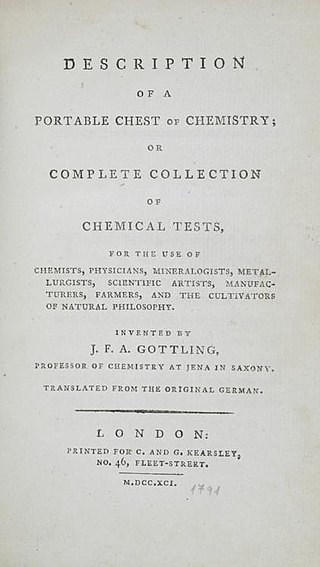
Johann Friedrich August Göttling was a notable German chemist.

Lorenz von Westenrieder was a well-known author and historian in Bavaria and a critic of the Elector Karl Theordor and supporter of Maximilian IV Joseph. There are several memorials to him in Munich.
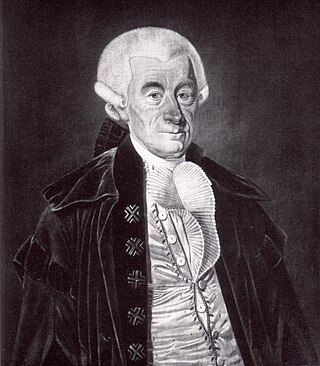
Johann Stephan Pütter was a German law lecturer and publicist. He was professor of law at the university of Göttingen from 1746 until his death. He exerted great influence on the law institutions of his time. His principal work is Historische Entwicklung der heutigen Staatsverfassung des Deutschen Reichs.

Maximilian Ernest of Austria, was an Austrian prince member of the House of Habsburg and by birth Archduke of Austria.

Amalie Schoppe was a German author. She was also known by her pseudonyms Adalbert von Schonen, Amalia and Marie. She is most notable as the author of books for children and young people, with an oeuvre totaling 200 volumes. The Amalie-Schoppe-Weg in the Hamburg-Barmbek-Nord district of Hamburg and the Amalie-Schoppe-Straße in Burg auf Fehmarn are named after her.
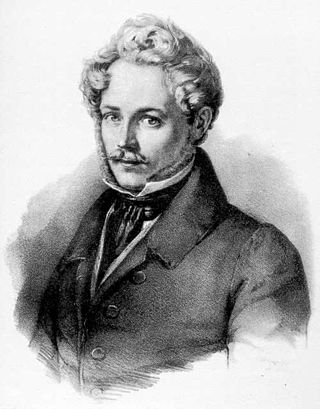
Ernst Fries was a German painter, draftsman, watercolourist, etcher, printmaker, and lithograph. Besides Karl Philipp Fohr and Carl Rottmann, he was the youngest of the so-called triumvirate of Heidelberg Romanticism. His works represent a transition from Romanticism to Realism.
Friedrich Wilhelm Hermann Wagener was a Prussian jurist, chief editor of the Kreuzzeitung and was a politician and minister from the Prussian Conservative Party.

John V, Count of Oldenburg and Delmenhorst was a member of the House of Oldenburg. He was the ruling Count of Oldenburg from 1500 to 1526. His parents were Gerhard VI, Count of Oldenburg and Adelheid of Tecklenburg.

Wilhelm August Ritter von Hartel was an Austrian philologist specializing in classical studies.
Alfred Richard Wilhelm Kühn was a German zoologist and geneticist. A student of August Weismann, he was one of the pioneers of developmental biology. At a period when biology was largely descriptive, he collaborated with zoologists, botanists, organic chemists, and physicists conducting interdisciplinary studies, examining sensory biology, behaviour, and biochemistry through experiments on organisms.

Carl Friedrich Wilhelm Duncker was a German publisher and bookseller. He played an important part in the early creation and growth of the publishing firm which became Duncker & Humblot, more recently the publishers of the Neue Deutsche Biographie, a biographical dictionary.
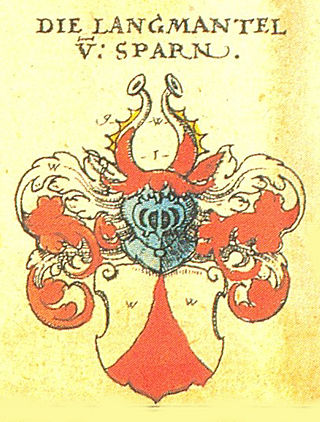
Christoph Langenmantel or Christoph Langenmantel vom Sparren was a nobleman, Carmelite friar, canon of Freising and a supporter of Martin Luther.

Burkhard Wilhelm Pfeiffer was a German jurist and liberal politician. He is best remembered to students of German legal history as the author of Praktische Ausführungen aus allen Teilen der Rechtswissenschaften, Mit Erkenntnissen des Oberappellationsgerichts zu Kassel or "Practical Explanations from all Parts of Jurisprudence, with Findings of the High Court of Appeal in Kassel," and for his years-long rivalry with the Hessian prime minister Ludwig Hassenpflug.
Events from the year 1797 in Germany.

The County of Steinfurt, originally the Lordship of Steinfurt, was a historic territory of the Holy Roman Empire in the Munsterland. It existed from roughly 1100 until 1806.